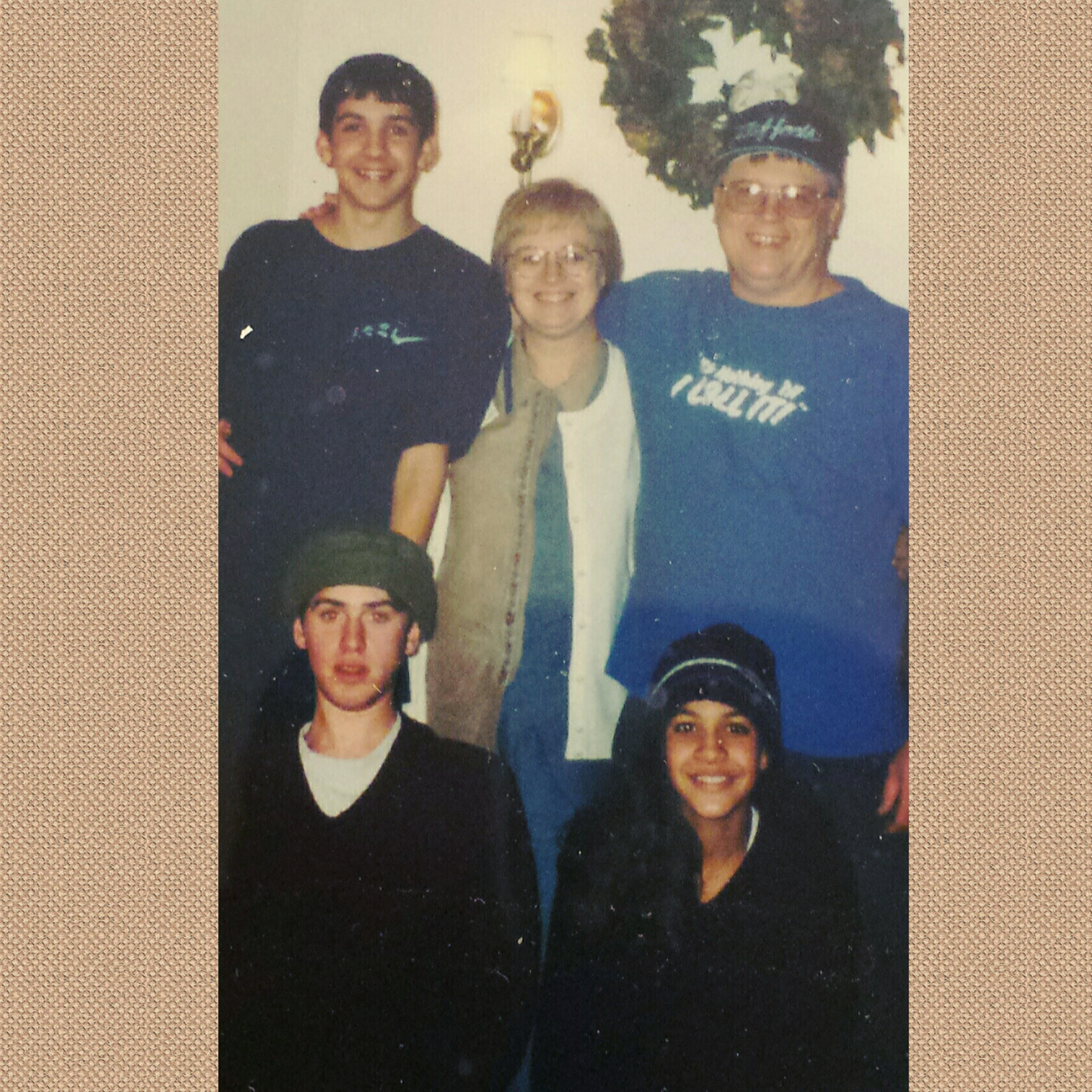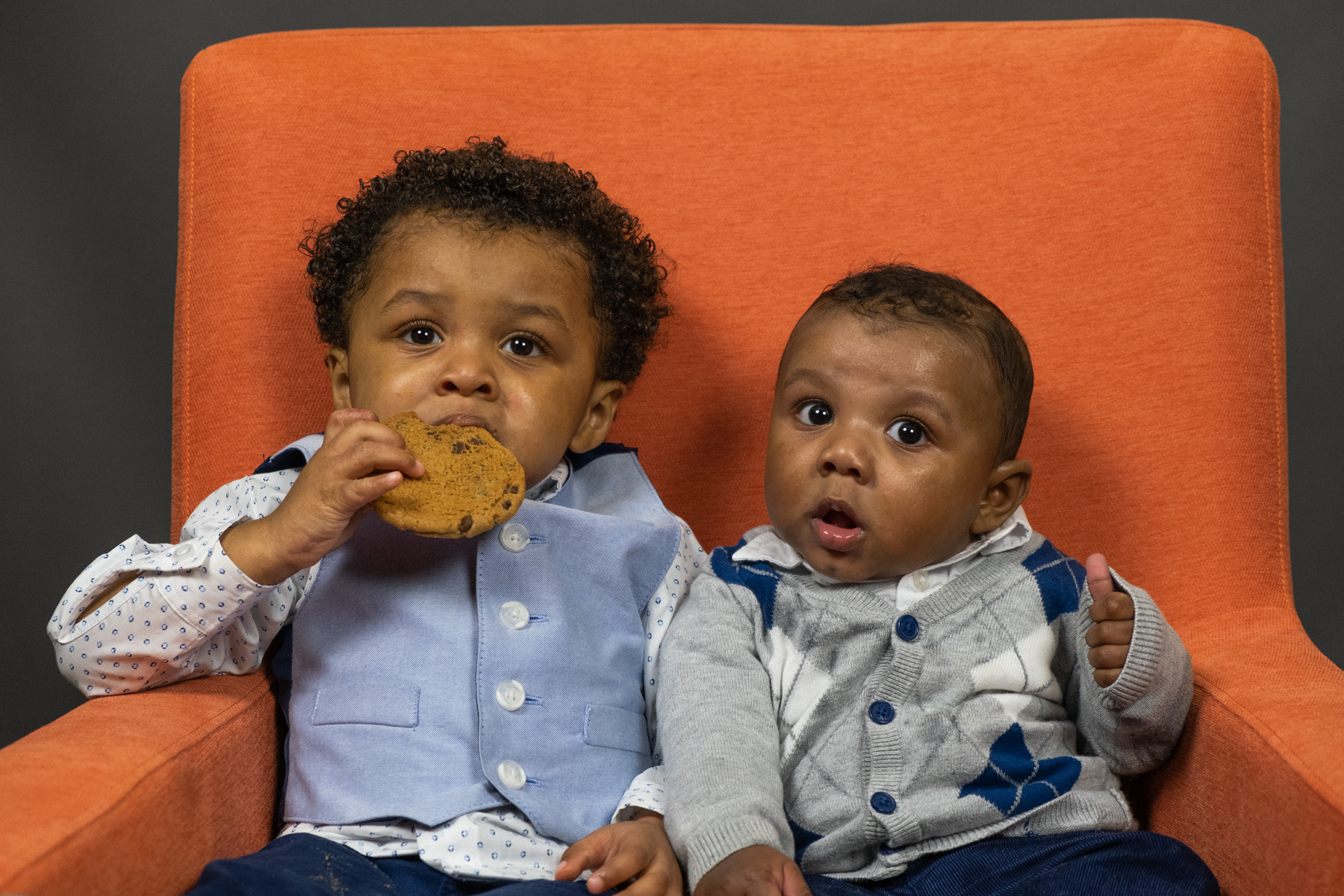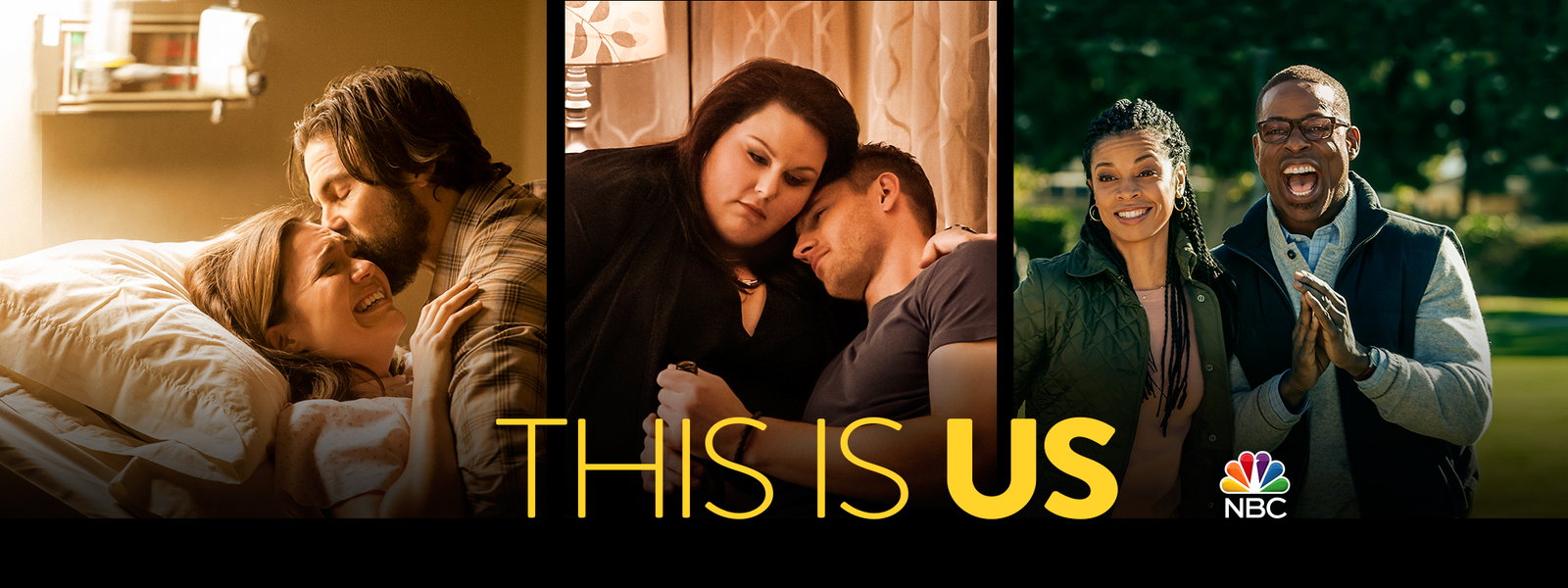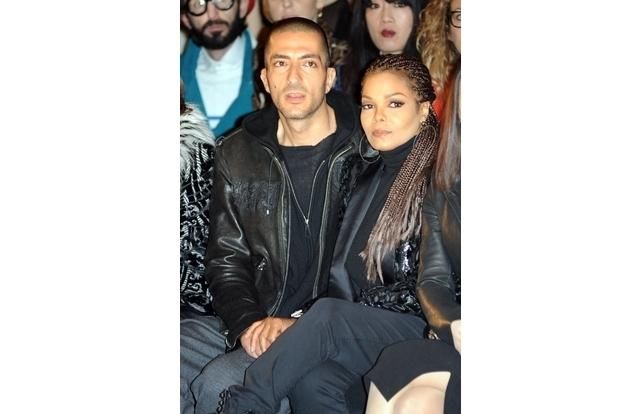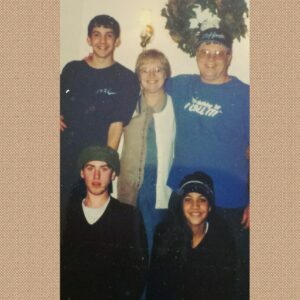
When I saw the Blackish episode on ABC, poignantly titled “Hope” I immediately felt overwhelmed with emotion. This episode that addresses the increasingly hot and pressing issues of racial injustice and police brutality hit me in the gut and the heart. And any parent or family watching would have to not have a pulse to not feel the emotion charging through their screen from this episode.
I feel this episode is so important not only because of what they talked about, but equally important is how they talked about these issues.
Let me set the stage: the Johnson family is an African-American, upper middle class family living in California. Andre Johnson aka Dre, played by Anthony Anderson, is an upper level advertising exec who struggles with the balance of instilling black culture in his children’s lives while they assimilate in white suburbia. His wife, Rainbow Johnson, played by Tracee Ellis Ross, is a neurosurgeon who is the biracial, optimistic hopeful counter-point to Dre’s protagonist. They have four kids, a teenage son and daughter, and twin 6 year olds, Jack and Diane. For additional comedy, Laurence Fishburne and Jenifer Lewis play Dre’s separated & retired parents who live in their son’s guest house. It’s a very funny show that highlights the everyday struggles families deal with in addition to the dynamics of cultural identity in an increasingly blended world. (Something many of us interracial families can relate to)
The “Hope” episode was very different though from the typical comedy. The show opens with a montage of images of events throughout history that captured significant and shocking moments of social change in our country and the world. There were images of Gandhi, John F. Kennedy, Martin Luther King Jr. up to more modern day events as recent as this past year: The riots in Ferguson and Baltimore and several others.
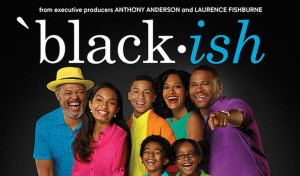
The episode (which you can watch here) centers around the family gathered in their living room glued to the TV some weeknight evening. They were watching the news together waiting for the grand jury decision on an indictment of a fake police case where an officer “tazed an unarmed man hustling bootleg DVDs 37 times”. As the two 6-year olds are asking questions about what the news channel and their parents are discussing, their teenage daughter walks in and assumes “oh this is the case about the unarmed kid shot in the back in the middle of the street? “
“No that was Chicago.”
“Oh, it’s the case about the unarmed man at the traffic stop?”
“No that was Cincinnati…”
This back and forth between father and daughter, while dare I say slightly satirical, lists various incidents from actual headlines, set the stage for the level of frustration that Dre has with the state of affairs and the social justice concerns of many black people today.
And so the episode continues, with the family debating, discussing and even disagreeing on all the complexities that these issues carry.
THE STRUGGLES ALL FAMILIES FACE
It was so great because creator, Kenya Barris, perfectly hits all of the awkward and difficult moments ALL parents face when talking about adult topics to kids.
On one side, you have the “Tip-Toer”; you know the one who will do almost anything to keep kids “protected” from the conversation. They do things like spell out words around children or in Rainbow’s case, she forces her two youngest out of the room to sort the massive pile of take-out menus to pick dinner.
On the other side, you have ”The Confronter” aka “The one who keeps it real!” This individual has no qualms about tackling tough conversation. They actually like it! This person would rather deal with the consequence of people getting the hard truth now, no matter how difficult, than deal with the awkwardness of avoiding the situation.
This is Dre, who feels that all of their kids, youngest included, need to know the truth about the world and that watching and discussing the highly publicized police case is an important cultural event.
HOW DOES THIS APPLY TO US?
So at the start of the episode you have parents who feel they have little control over what they’re kids are influenced by due to the overly connected, overexposed technological world kids are growing up in. And by the end, you see through conversation and discussion that the Johnson parents become fully empowered knowing they are still a positive influence in their children’s lives.
Which is one of the most important messages I hope my readers get from the episode:
Parents, you can still have a positive influence on your children and family still matters even amidst all the technology we’re attached to.
I loved how this entire episode (that was given extended air time by the way) was only filmed in the living room. It’s in the heart of every home. I could easily recall from my memory the many “living room talks” my parents had with us growing up. Conversations about “the birds and the bees”, peer pressure, drugs and alcohol, bullying, racism, etc. I promise you, these conversations are just as awkward for us kids as they are for you parents. My brothers and I would pile together on the couch while our parents sat across from us; dad in the recliner and mom in the rocking chair. And my brothers and I sat tightly together like a wall of defense against weird parental questions that would get fired at us like missiles! It was very important to fidget with our sweatshirt strings and pjs so we could avoid eye contact at all costs!
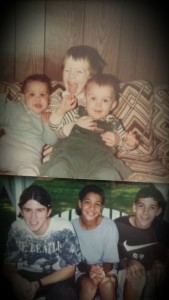
THE HARD PART
These conversations are always going to be awkward. My family often acknowledges how “different” we are, not because of how we look together, but because of how we behave and what we talked about. Our conversations were so weird growing up. Why you ask? Well, because my dad was a pediatrician and the “birds and the bees” conversation was as regular as conversations about the weather.
And for those who don’t have a light stomach, I’ll give you this visual: he would often prepare his talks on sexually transmitted diseases on his projector at our dining room table. Yes, his slide show included text book images of STDs. Gross! And since my mom was a guidance counselor, we had the added benefit of both of them being very in tune with current adolescent culture (insert sarcastic “yay!”). So needless to say, my dad had years of practice going toe-to-toe with teenagers and asking them difficult questions.
Ha! Like an old western shootout, if my dad fired a question and we tried to fire back a response that avoided his question, he’d fire his question right back! There isn’t anything a teen could do to dodge the issue. I honestly don’t think he knows how to feel uncomfortable…or give up when he wants to talk about something. (See, I get my stubbornness from you dad!)
And even though, it was super uncomfortable for us, both my brothers and I actually appreciate that they did it, now that we’re adults.
THE GOOD NEWS
We realize in those living room talks, our parents showed us that it was okay to talk about difficult topics. In fact they cared so much, that they would make sure that we talked about them. There was no problem too big or too taboo to share with them even if we really didn’t want to talk about it… They made it very clear that they were interested in listening to us and knowing about issues in the world or in school that could affect us. And they made sure we knew that they had our backs. Even if they didn’t always agree with decisions we made and even if/when we made mistakes, the most important thing is that they loved us regardless. And we knew this because we talked about it.
It was a safe space. Albeit, a very awkward & weird, yet, loving safe space.
My parents are as “white” as you can get, but they made sure to address racism with us. They made sure to ask, and prod, and pry about my life to make sure I wasn’t getting hurt because of my skin color. They drilled my brothers to make sure they didn’t overhear or see any racist things happening to me. They asked and then they prepared us. “What do you do if someone says mean things to you because you look different?” “Who do you talk to if someone hurts you or says the N-word?” “If someone says something racist or tells a racist joke, what are you boys going to do or say to stand up for your sister?”
Even though they didn’t have first-hand experience with racism as a minority, they could share their first-hand experience of racism from their perspective as kids growing up. My dad told me about how he saw Ku-Klux Klan marches parade through his small, southern town. And he told me that it scared him. He was white, but it scared him. My mom shared how her family gathered in their living to pray when there were riots happening across the country in the 60s.
They aren’t black like me but they let me know that because their baby girl is, if it was important to me, it’s important to them!
HERE’S WHAT COUNTS
Even though you may not know where to start the conversation, it’s more important that you actually just start the conversation.
Some of the tough topics are especially challenging to talk about. While sex-ed seemed to be a breeze for my parents to discuss growing up, I know that the racial injustice issue right now would have been difficult, even for them. But, if you have a child, spouse or family member that is a minority, whether you are black or not, you do still have a responsibility to address it. Because it is our reality, it is therefore, your reality.
In this Blackish episode, we see this family face a major issue head on and they grow closer because they work through it together.
So Keep it Real and Don’t be a Tip-Toer!
While I still worry about how to prepare my future sons with how to deal with the police if they ever would get stopped; I know it is a necessary conversation that we’ll probably have to have with them before they’re ten years old.
“No way Liz! Ten years old is way too young for that dose of reality. I don’t want my child frightened!”
Honestly, at ten years old it may even be too late. I once dated a guy (he was black) who grew up in a rough neighborhood in New York City. He stopped at the corner store for a snack on his way home from school and got there just after another brown-skinned kid stole some merchandise. The store owner falsely accused my ex in front of the police officer at the scene. When he tried to run away because he was scared and he knew he was innocent, he was punched in the face by the adult officer. He was eight years old at the time.
So which is worse: having the difficult conversation that prepares your sons for reality so they can prayerfully avoid those encounters or having to identify them at the precinct or the morgue?
Hopefully, we can heed the advice of Dre’s mom, Ruby: “The only 6 words you need to know when dealing with the police are: ‘ Yes, sir. No, sir. And Thank you, sir.” The important thing for our black children is that they know how to stay alive if dealing with an encounter with cops.
If you’re still concerned about the maturity level of your kids, then use your best judgement. But I believe it’s best to tell kids as early as necessary and as often as necessary. And this applies to all important family topics (Race, sex, adoption, etc).
JUST HAVE THE CONVERSATION!
Even if you don’t have any minorities in your family, I encourage you to also take on the challenge. I encourage you to start a conversation with your kids about what we’re all seeing on TV and Social media. If you don’t know where to start, I suggest starting by watching the Blackish episode, “Hope” as a family.
My parents often used the 90s hit show 90210 that we watched regularly to segue into important family talks right after it finished…
JUST HAVE THE CONVERSATION!
And don’t worry if you don’t get it right parents! My brothers and I quickly caught on to my dad’s game of “Dylan and drugs” or “Donna and eating disorders” or whatever other 90210 teen issue that was addressed. Thankfully, he didn’t do it all the time but enough to let us know that they care.
In this Blackish episode it’s touching in the realty that the parents didn’t have all the answers. Parents don’t need to be perfect or know everything. The truth is, you don’t and kids don’t expect you to be. And we see the Johnson parents have an honest conversation about something that scared their kids and scared them too.
Yes, the topic that they discuss in this episode is extremely important but even more important is the fact that they discussed it.
A lesson all families,” black-ish” or not, could learn from.
Suggestions for conversation:
Use Media/Entertainment: To help take some pressure off, I think it’s easier to connect with what your kids are already into socially. Use TV shows or music to start with the foundation of the conversation.
Address important issues in a group: I appreciate as the only black kid- or person- in my family that my parents talked about issues in a group and didn’t single me out. The group discussion very much established what our family values are as a family. Like, “Here’s what we believe…”
Also address important issues individually: Some issues require quality one on one time to get to the heart of the matter. I know there were things my mom discussed with me as her daughter that were very different from things my dad discussed with my brothers. Individual talks gave us quality time to bond together and created a safe space that allowed me to open up even more without concern of judgement or teasing from my brothers.
I’d love to hear from you, what are some ways your family discusses important issues? Are there things that have worked especially well with your kids?
Please share!

